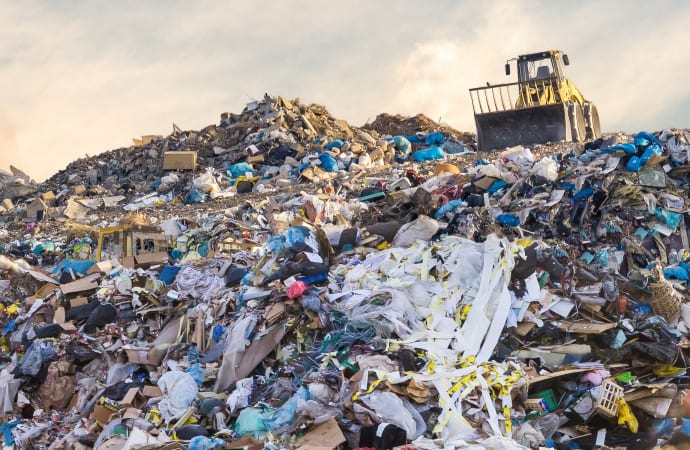The problem of waste plastic continues to grow globally, and the scope of the problem offers a unique opportunity for the development of new technologies to begin to solve the problem.
Scope, Scale & Solution
Plastics play an important role in our daily life, yet proper management of plastic waste streams has not been adequately addressed. The result has led to the world being confronted with an enormous waste plastic problem — one that continues to grow every day.
The Size of the Problem
According to a report published in November 2011, the U.S. Environmental Protection Agency (EPA) determined that the United States generated 31 million tons of plastic waste in 2010.
Compared to other waste streams, such as paper or metals, the rate of plastics recovered for recycling is relatively low.
The EPA report indicates that only approximately 8% or 2.4 million tons of all plastic waste generated is actually recovered for recycling.
This means that, in 2010, approximately 92% of all plastic waste was destined to landfills, or worse, diverted to other countries.

The Problem Is Growing
The EPA also reports that in 1960, waste plastics constituted less than 1% of MSW in the United States.
By 2009, this statistic had risen to more than 12% and it is estimated this problem will continue to grow at progressive annual rates.
To date, solutions to this growing problem have been constrained by technological challenges and the politics of how to manage and dispose of waste plastics.
The Diversion Myth
Diversion is a topic that is widely misconstrued. Waste diversion is now an integral component of waste management and is intended to reduce the mass or amount of Municipal Solid Waste (MSW) destined for landfills.
Although diverting waste may reduce the amount of plastic waste in landfills in North America and prevent a rise in the number of future landfills, the burning of waste results in the high emission of toxic and greenhouse gases such as methane.
The P2O Solution
With our revolutionary technology, Plastic2Oil has pioneered a process that has the ability to change the way the world handles waste plastic and plastic recycling.
Our patent pending process has the ability to transform the 92% of unsorted, unwashed waste plastic that is currently diverted or destined for local landfills into ultra-clean, ultra-low sulphur fuel.
The process is commercially viable, providing immediate economic benefit for industry, communities and government organizations with waste plastic recycling challenges